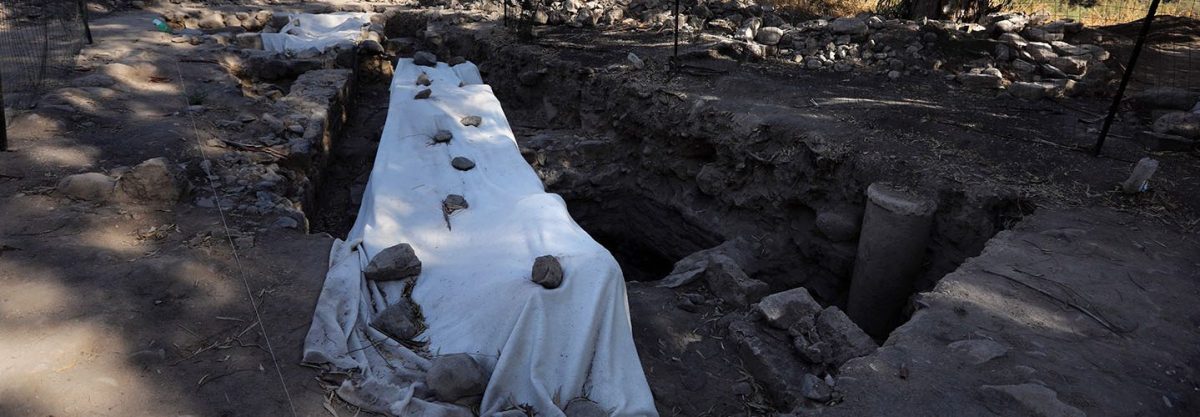After decades of searches by archaeologists in the upper Jordan Valley, the lost Roman city of Julias, believed to be the birthplace of Jesus’s apostles Andrew, Peter and Philip, may have recently been unearthed.
The discovery was made during excavations at Beit Habek, located in Bethsaida, by archaeologist Dr. Mordechai Aviam, head of the Kinneret Institute for Galilean Archaeology at Kinneret Academic College. Bethsaida was once a fishermen’s village on the northern shore of the Sea of Galilee, and is mentioned in several New Testament books as the home of at least three of Jesus’s most important apostles, reports the Jerusalem Post.
The exact location of the city has been debated, however. Aviam was working with Professor Steven Notley of Nyack College in New York during a recent dig. Aviam said that a layer from the Roman period was discovered in the current excavation season, “with potsherds and coins from the first to the third centuries CE.”
The biggest surprise was at the bottom of the excavation, where they found a wall of a building, next to a mosaic floor and artifacts that could be from a bathhouse. Aviam said that bathhouses were not common during the Roman period in that area, so this serves an important clue that beneath the surface are the remains of Julias, which as not been identified to this day, reports the Jerusalem Post.
“Excavation of the site will continue until the lost city of Julias is definitely identified,” Aviam said to the Post.
This article appeared in an InsideHook newsletter. Sign up for free to get more on travel, wellness, style, drinking, and culture.
























